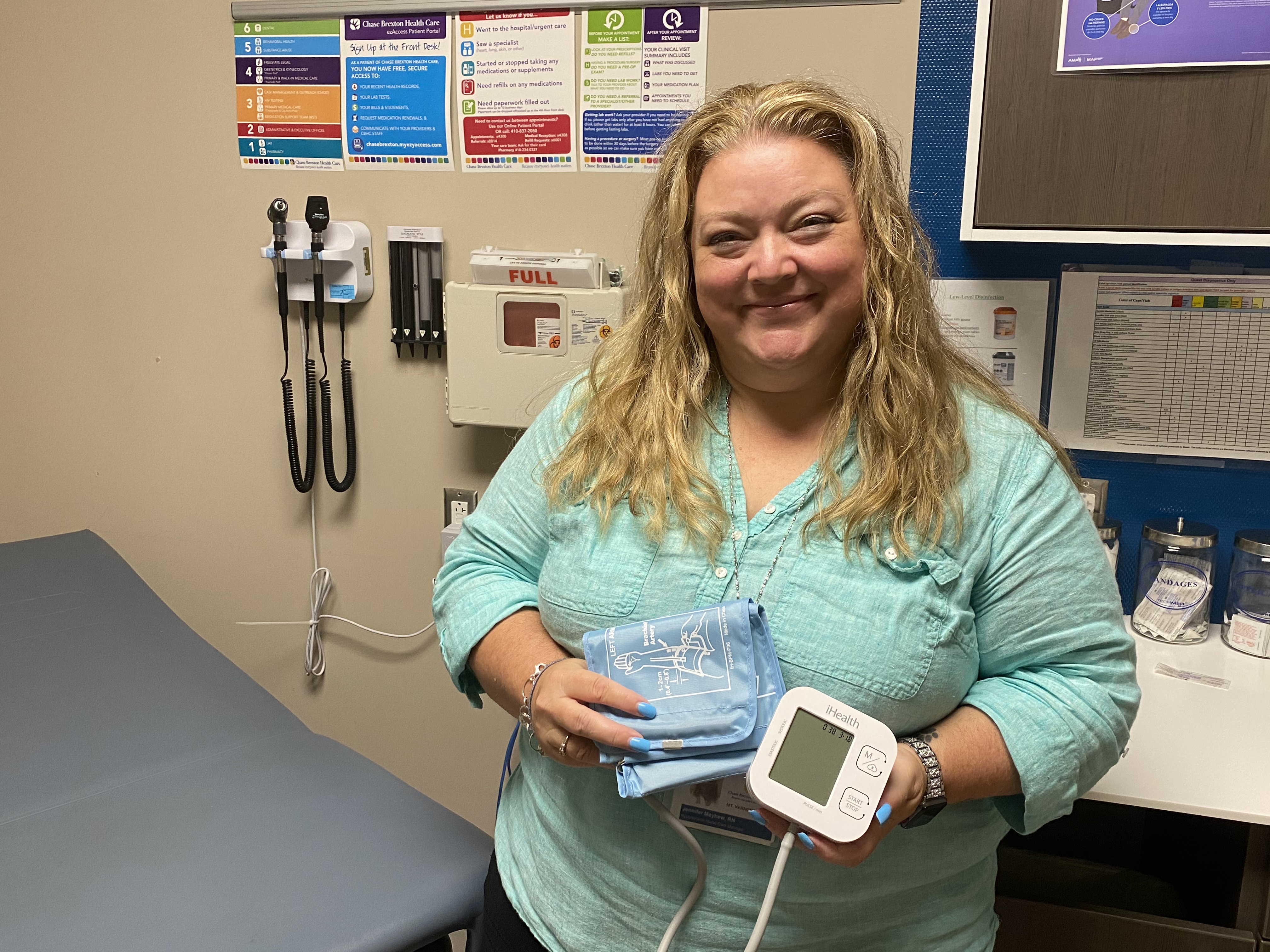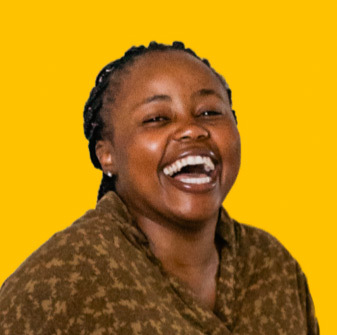(11/11/22) Nurse Jennifer Mayhew’s patient believed her blood pressure was more or less normal, and her current health was just part of her life—until Mayhew checked the patient’s blood pressure and found it was 200/120, a dangerously high reading with the potential for severe health effects.
Those type of patient encounters underscore the importance of Chase Brexton’s new nurse-driven blood pressure monitoring and education initiative. Funded through the Health Resources and Services Administration’s National Hypertension Control Initiative, the program is available to Chase Brexton patients with diagnosed hypertension or a blood pressure of 140/90 in the past six months.
Chase Brexton’s program provides patients with education about high blood pressure management and an interactive blood pressure cuff to help them check their blood pressure at home. The cuff syncs to the patient’s device, if applicable, and to their patient portal app; test results are automatically entered into their electronic medical records, where their healthcare providers can access them.
Mayhew calls the program “nurse-driven” because patients can be enrolled in it by nurses without a provider sign-off, and nurses can refer patients into it.
“It’s all about educating patients about hypertension,” Mayhew said. “They don’t necessarily need to talk to their provider. They can talk to their care team.”
The program began in April with a pilot effort including eight patients. It launched in full in early June, expanding to more than a dozen patients; including those in the process of onboarding, Mayhew said the program would total 50 patients by the fall of 2022.
While the blood pressure cuff helps monitor a patient’s progress, Mayhew said that’s only one part of getting a patient’s blood pressure under control. The program emphasizes health literacy, changing habits, keeping appointments, and medication adherence—and using all of Chase Brexton’s services to remove any barriers a patient faces.
“We want to find gaps in patient’s knowledge and lift them up with education and wrap-around services at Chase Brexton,” she said. “To make that patient better, we have to look at the whole patient.”
The patient Mayhew saw who unknowingly had a dangerously high blood pressure was among the first enrolled in the monitoring and education program. With the program’s assistance, her blood pressure is now under control.
For Mayhew, those success stories are testament to the benefits of having a full care team engaged in helping patients in all aspects of their lives.
“It’s not just about your blood pressure,” Mayhew said. “Studies have found that having regular contact with patients who have chronic disease helps those patients do better because they know someone cares about them.”
Below: Jennifer Mayhew displays the blood pressure cuff and information provided to patients enrolled in the program.


